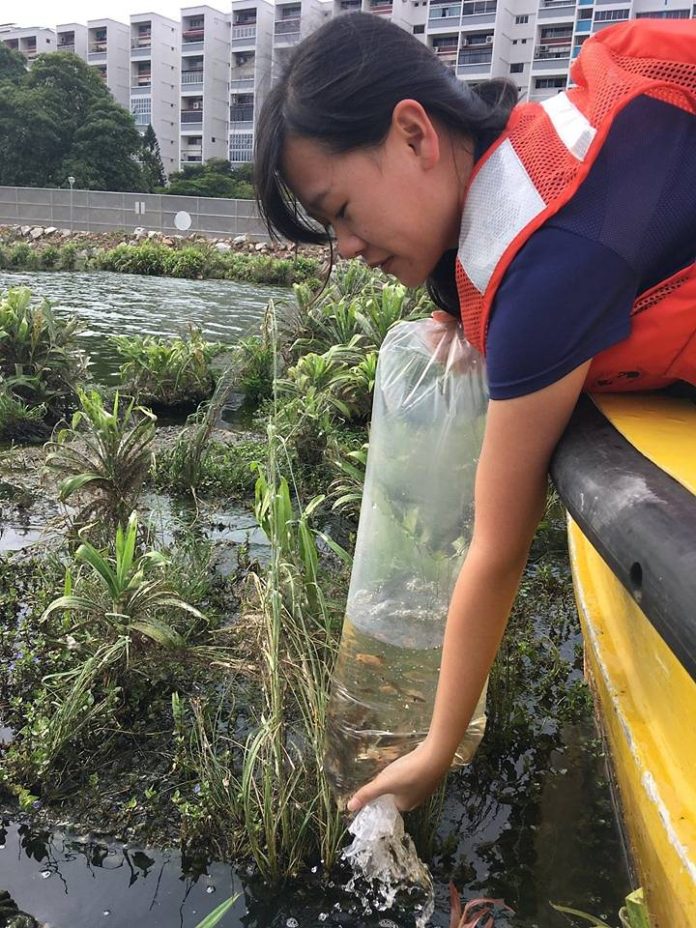SINGAPORE: National water agency PUB has released “tens of thousands” of fish into Pandan Reservoir, the latest measure employed to try to control the midge pupae population, it said on Friday (Sep 6).
The release of the guppies, mollies and swordtails into the reservoir was done in a controlled manner that does not affect its ecosystem, PUB said in a Facebook post.
Midges, which are commonly mistaken for mosquitoes, are small insects which exist in and near water bodies.
“While these midges do not bite or spread diseases, they can be a nuisance when present in large numbers,” said PUB.
Residents and businesses at Teban Gardens have been affected as swarms of the insects have infested the neighbourhood.
READ: Pandan Reservoir midge infestation: ‘You can say that we’ve given up’
READ: PUB stepping up measures to tackle emergence of rare dominant midge species at Pandan Reservoir: Masagos

PUB biologist Tricia Poh releasing fish into Pandan Reservoir to help control the midge pupae population. (Photo: Facebook/PUB)
PUB said insect nets have also been installed at bus stops along Penjuru Road and West Coast Road.
The nets are laced with permethrin, an insecticide used in PUB’s fogging operations. It is non-toxic to humans.
An insect net installed at a bus stop along West Coast Road to help deter adult midges from entering the area. (Photo: Facebook/PUB)
Earlier, PUB said in a Facebook post on Aug 1 that it had stepped up measures to control the rising midge population around Pandan Reservoir.
These include putting more biological liquid larvicide within the reservoir, fogging and misting around the reservoir dyke and surrounding vegetation more frequently, and installing bright spotlights at the Pandan Reservoir pumping station to attract adult midges when they emerge at night. According to PUB, the bright lights deter them from flying into residential estates.
READ: PUB to carry out fogging, checks as midges multiply near Pandan Reservoir
There are approximately 57 species of non-biting midges in Singapore’s reservoirs.
The current dominant midge species that has recently emerged at Pandan Reservoir is a rare one that has not been studied in great detail, said Minister for Environment and Water Resources Masagos Zulkifli in Parliament on Monday.
The species exhibits different behaviours from other species, he added.
“Midges cannot be eradicated as they are part of the natural aquatic ecosystem, and will emerge to breed, especially when aided by favourable environmental conditions. Climate change will further complicate our efforts,” he said.





